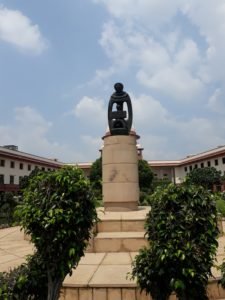The Appellant filed a complaint against M/s AVS Constructions – a Partnership Firm (Accused No.1) and its partners (including S. Srinivasan, Accused No.4, the Respondent) for the dishonour of twelve cheques amounting to INR 6,00,00,000/- (Six Crore Rupees).
These cheques were issued as part of a sale consideration and were signed by S. Yuvaraju (Accused No.2), an authorised signatory of the Partnership Firm.
Upon dishonour due to “stop payment” instructions, a statutory notice was served, and as no payment was received, a complaint was filed under Section 200 of the CrPC for an offence under Section 138 of the NI Act.
The Respondent (S. Srinivasan, Accused No.4) filed a petition under Section 482 CrPC before the High Court, claiming he had retired from the Partnership Firm on 01.04.2015, and thus, proceedings against him should not continue.
The Appellant countered that the Respondent’s claim of retirement did not comply with the statutory mandates of the Indian Partnership Act, 1932 (specifically Sections 32, 62, and 63)23. The Appellant alleged the Respondent fabricated a backdated retirement deed to escape liability.
The Trial Court initially dismissed the Respondent’s application to discharge him, but the Single Judge of the High Court allowed the Respondent’s petition and quashed the proceedings against him, observing that the cheques were not signed by the Respondent, and he had ceased to be a partner when the cheques were issued.
Law Involved
Section 138 of the Negotiable Instruments Act, 1881 (NI Act): Pertains to the dishonour of cheques for insufficiency of funds or “stop payment” instructions.
Section 200 of the Code of Criminal Procedure, 1973 (CrPC): Relates to the examination of the complainant on oath for filing a complaint.
Section 482 of the CrPC: Grants the High Court inherent powers to quash criminal proceedings to prevent abuse of the process of any court or otherwise to secure the ends of justice.
Indian Partnership Act, 1932:
▪Section 32: Deals with the retirement of a partner.
▪Section 62: Addresses the submission of information regarding changes in partners’ names and addresses to the Registrar of Firms.
▪Section 63: Mandates that a notice of retirement must be given to the Registrar of Firms and published in the Official Gazette and at least one vernacular newspaper circulated in the district.
▪Section 72: Requires a retired partner to publish a public notice in a vernacular newspaper.
◦Section 161 of the NI Act: Not explicitly mentioned but the source refers to it for fulfilling requirements.
◦The case involves mixed questions of fact and law that require evidence to be led .
Reasoning
The Supreme Court noted that the High Court had quashed the proceedings by accepting the Respondent’s contention that he had ceased to be a partner, and that the cheques were not signed by him, without thoroughly examining the facts.
The Court found that the High Court’s finding that the cheques were not legally enforceable against the Respondent was unjustified.
The Supreme Court highlighted that the Respondent’s claim of retirement and cessation of liability needed to be “tested on the anvil of the pleadings and the Statutory requirements” of the Partnership Act.
Merely asserting retirement or drafting a deed is insufficient to discharge liability without a proper entry in the Registrar of Firms and public notice as mandated by Sections 63 and 72 of the Partnership Act. No such publication was produced.
The fact that the cheques were signed by an authorised signatory (S. Yuvaraju, Accused No.2) and that the Respondent was involved in the firm’s day-to-day affairs, as alleged in the complaint, collectively demonstrate that the requirements under Section 141 of the NI Act have been satisfied.
The Court concluded that the High Court had erred in exercising its powers under Section 482 CrPC, as these aspects are mixed questions of fact and law that require the parties to lead evidence, and thus, cannot be gone into or decided in a Section 482 CrPC proceeding .
Holding
The Supreme Court allowed the present appeal .
The order dated 23.09.2023 passed by the High Court of Karnataka, Bengaluru, was hereby set aside .
The proceedings before the ACMM, Bengaluru in CC No. 17788/2020 are restored .
The Trial Court is directed to proceed in accordance with law .
The Court’s observations are not to bear on the merits of the case in the trial and are restricted to the jurisdictional scope of the High Court .
Shivappa Reddy V. S. Srinivasan
Supreme Court: 2025 INSC 729: (DoJ 19-05-2025)






